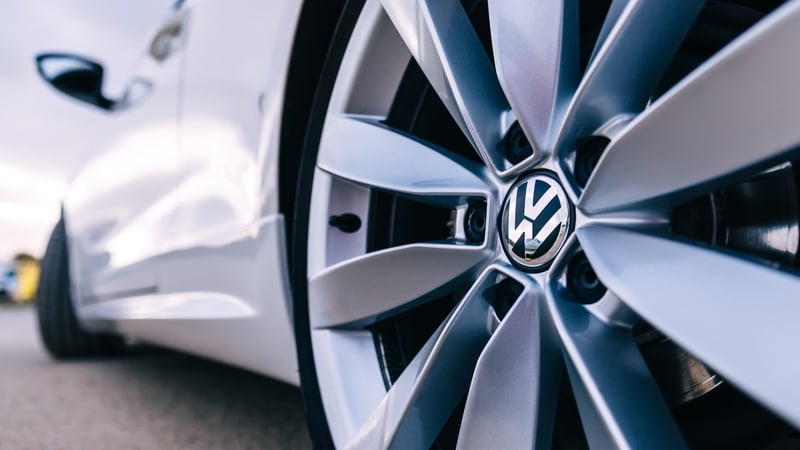Volkswagen has today reported a €1.3 billion first-half hit from tariffs and cut its full-year sales and profit margin forecasts in the German carmaker’s first assessment of the damage from US President Donald Trump’s trade war.
European car makers have booked billions of euros of losses and issued profit warnings as they face US import tariffs, stiffening competition from China, and domestic regulations aimed at speeding up the electric-vehicle (EV) transition.
Volkswagen now expects this year’s operating profit margin between 4% and 5%, compared with a previously forecast 5.5-6.5% range, Europe’s biggest carmaker said, giving its long-awaited assessment of the impact of tariffs alongside quarterly results.
Full-year sales are expected to be level with the previous year, compared to a previously forecast rise of up to 5%.
Tariffs alone cost the carmaker €1.3 billion in the first six months of 2025, the company said.
Volkswagen and its competitors are pressing European trade negotiators to strike a deal to reduce a 25% punitive tariff they have faced since April. One industry proposal is to use their US investments and exports as leverage to soften any blow.
Volkswagen said its results would land at the lower end of forecast ranges if the tariffs remained unchanged for the rest of the year, or at the upper end under a scenario with a reduced rate of 10%.
“There is high uncertainty about further developments with regard to the tariffs, their impact and any reciprocal effects,” the quarterly statement said.
EU diplomats have indicated that the bloc could be moving towards a broad 15% tariff as it seeks to avoid a separate 30% levy from August 1. A deal struck between the US and Japan earlier this week raised hopes for a similar agreement for Europe, boosting carmakers’ shares.
Volkswagen reported an operating profit of €3.8 billion in the quarter ended June 30, down 29% on the previous year, citing tariffs and restructuring costs, as well as higher sales of lower-margin all-electric models.
Car sales data for June underpinned a broader slowdown in Europe’s struggling auto sector – and showed Volkswagen among the laggards as the company undergoes a major overhaul to cut over 35,000 jobs by the end of the decade.




